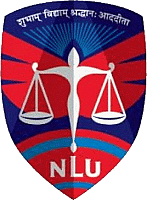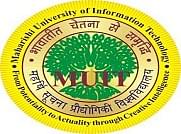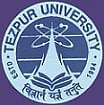Introduction
about Ph. D in Taxation
A Ph.D. in Taxation from best college is an advanced academic degree program designed for individuals
seeking to develop expertise in tax law, policy, and practice at an advanced
level. Taxation is a crucial aspect of economics and law, influencing business
decisions, government policies, and individual financial planning.
The Ph.D.
program in Taxation typically offers a rigorous curriculum that combines
advanced coursework, research, and practical experience to prepare graduates
for careers in academia, research institutions, government agencies, tax
consulting firms, accounting firms, or the legal profession.
Throughout
the program, students engage in intensive coursework covering topics such as
federal income taxation, corporate taxation, partnership taxation,
international taxation, state and local taxation, tax accounting, tax policy,
tax planning, and tax research methods. They also delve into advanced legal,
economic, and accounting principles relevant to taxation.
A
significant component of a Ph.D. in Taxation is the completion of original
research leading to a doctoral dissertation. This research is expected to
contribute new knowledge or insights to the field of taxation, often addressing
pressing tax policy issues, evaluating tax law changes, or advancing tax
theory. Doctoral candidates work closely with faculty advisors and mentors to
develop and execute their research projects, enhancing their analytical,
critical thinking, and writing skills in the process.
Graduates
of Ph.D. programs in Taxation are equipped with the knowledge, skills, and
expertise to analyze complex tax issues, conduct independent research, and
contribute to the development of tax law, policy, and practice. They may pursue
careers as professors, researchers, tax policy analysts, tax attorneys, tax
consultants, or accountants, where they can make meaningful contributions to
society through teaching, research, policy analysis, or professional practice.
Overall, a
Ph.D. in Taxation offers a challenging and intellectually stimulating academic
journey for individuals passionate about taxation and committed to making
significant contributions to the field through rigorous research, scholarship,
and professional practice.
What
is admission process for Ph. D in Taxation?
The
admission process 2024 for a Ph.D. in Taxation can vary depending on the specific
program and institution offering the degree. However, here's a general overview
of the typical steps involved in the admission process:
Research
Programs: Prospective applicants
typically start by researching Ph.D. programs in Taxation or related fields
offered by various universities to identify programs that align with their
research interests, career goals, and academic background.
Review
Admission Requirements:
Applicants should carefully review the admission requirements and application
deadlines for each program they're interested in. These requirements are
usually outlined on the program's website or in the application instructions.
Prepare
Application Materials:
Academic
Transcripts:
Applicants are required to submit official transcripts from all previous
academic institutions attended, demonstrating strong academic performance,
particularly in relevant coursework such as taxation, accounting, economics,
business, or law.
Standardized
Test Scores: Some
Ph.D. programs may require applicants to submit scores from standardized tests
such as the GRE (Graduate Record Examination) or GMAT (Graduate Management
Admission Test). However, some programs may waive this requirement or place
less emphasis on standardized test scores.
Letters of
Recommendation:
Applicants typically need to provide letters of recommendation from academic or
professional references who can speak to their qualifications, academic
abilities, research potential, and suitability for doctoral studies in
Taxation.
Statement
of Purpose:
Applicants are usually required to submit a statement of purpose or personal
statement outlining their academic background, research interests, career
goals, and reasons for pursuing a Ph.D. in Taxation. This is an opportunity for
applicants to articulate their passion for the field and their research agenda.
Resume/CV: A current resume or curriculum
vitae (CV) highlighting academic achievements, research experience,
professional experience, publications, presentations, and relevant skills.
Writing
Sample (if applicable):
Some programs may require applicants to submit a writing sample, such as a
research paper, thesis, or academic essay, to demonstrate their writing and
analytical abilities.
Submit
Application:
Applicants must complete and submit the online application form for the Ph.D.
program in Taxation, along with all required supporting documents and
application fees, by the specified deadline.
Interviews
(if applicable):
Some programs may require or invite shortlisted candidates for interviews as
part of the admissions process. These interviews provide an opportunity for
applicants to discuss their research interests, academic background, and career
aspirations with faculty members or admissions committees.
Admission
Decision: After reviewing all
applications and conducting interviews (if applicable), the admissions
committee evaluates each candidate based on their academic qualifications,
research potential, letters of recommendation, statement of purpose, and other
relevant factors. Successful candidates receive an offer of admission to the
Ph.D. program in Taxation.
Acceptance
and Enrolment: Accepted
applicants must formally accept the offer of admission and complete any
additional enrolment requirements specified by the university or program before
the enrolment deadline.
It's
important for prospective applicants to carefully review the admission
requirements and instructions provided by each Ph.D. program they're interested
in and to prepare their application materials thoroughly to increase their
chances of admission. Additionally, reaching out to faculty members or current
students in the program for guidance and advice can be beneficial during the
application process.
What
is eligibility for Ph. D in Taxation ?
Eligibility criteria for Ph.D. in Taxation can vary depending on the specific program and
institution offering the degree. However, here are some common eligibility
requirements:
Educational
Background:
Typically, applicants are required to have completed a master's degree in
taxation, accounting, economics, business administration, finance, law, or a
related field from an accredited institution. Some programs may accept
applicants with a bachelor's degree, particularly if they demonstrate
exceptional academic performance and relevant professional experience.
Minimum GPA: Many Ph.D. programs have a
minimum grade point average (GPA) requirement for previous academic coursework,
which is usually in the range of 3.0 to 3.5 on a 4.0 scale. However, higher
GPAs may be expected for more competitive programs.
Prerequisite
Courses: Some Ph.D. programs may
require applicants to have completed specific prerequisite courses in taxation,
accounting, economics, mathematics, statistics, or business law. These courses
provide foundational knowledge necessary for success in the Ph.D. program.
Standardized
Test Scores: Some
Ph.D. programs require applicants to submit scores from standardized tests such
as the GRE (Graduate Record Examination) or GMAT (Graduate Management Admission
Test). However, some programs may waive this requirement or place less emphasis
on standardized test scores, particularly if applicants have strong academic or
professional backgrounds.
Letters of
Recommendation:
Applicants are usually required to submit letters of recommendation from
academic or professional references who can speak to their qualifications,
academic abilities, research potential, and suitability for doctoral studies in
Taxation.
Statement
of Purpose:
Applicants typically need to submit a statement of purpose or personal
statement outlining their academic background, research interests, career
goals, and reasons for pursuing a Ph.D. in Taxation. This allows applicants to
articulate their passion for the field and their research agenda.
Resume/CV: A current resume or curriculum
vitae (CV) highlighting academic achievements, professional experience,
research experience, publications, presentations, and relevant skills.
Writing
Sample (if applicable):
Some programs may require applicants to submit a writing sample, such as a
research paper, thesis, or academic essay, to demonstrate their writing and
analytical abilities.
It's
important for prospective applicants to carefully review the eligibility
criteria and application requirements of each Ph.D. program they're interested
in to ensure they meet the necessary qualifications before applying.
Additionally, reaching out to faculty members or current students in the
program for guidance and advice can be beneficial during the application
process.
What
is syllabus for Ph. D in Taxation?
The
syllabus for Ph.D. in Taxation can vary significantly depending on the
specific program and institution offering the degree. However, here's a general
overview of the topics that may be covered in the coursework component of a
Ph.D. program in Taxation:
Advanced
Tax Law: In-depth study of federal
income tax law, including the Internal Revenue Code (IRC), Treasury
Regulations, judicial decisions, and administrative guidance. Topics may
include individual taxation, corporate taxation, partnership taxation, estate
and gift taxation, and tax-exempt organizations.
Tax Policy
Analysis: Examination of tax policy
issues, theories, and debates, including the economic, social, and political
considerations underlying tax policy decisions. Topics may include tax
fairness, efficiency, simplicity, neutrality, distributional effects, and tax incentives.
International
Taxation: Analysis of tax issues related
to cross-border transactions, multinational enterprises, and international tax
planning. Topics may include foreign tax credits, transfer pricing, controlled
foreign corporations (CFCs), tax treaties, and anti-avoidance rules.
State and
Local Taxation: Study of
state and local tax laws, regulations, and practices, including income taxes,
sales taxes, property taxes, and other state and local taxes. Topics may
include nexus, apportionment, tax base, tax credits, and intergovernmental tax
competition.
Tax
Research Methods:
Training in tax research methodologies, including legal research, empirical
research, and interdisciplinary research approaches. Emphasis is placed on
locating primary and secondary tax sources, analysing tax issues, and
synthesizing research findings.
Tax
Accounting and Financial Reporting: Exploration of accounting methods, principles,
and standards related to income tax accounting and financial reporting. Topics
may include deferred tax accounting, tax provision calculations, uncertain tax
positions, and tax disclosures.
Estate and
Gift Tax Planning:
Examination of estate planning techniques, strategies, and vehicles used to
minimize estate and gift taxes and achieve wealth transfer objectives. Topics
may include estate planning documents, valuation methods, lifetime gifts,
trusts, and charitable giving.
Tax
Compliance and Enforcement:
Analysis of tax compliance issues, taxpayer rights and responsibilities, tax
audit procedures, and tax enforcement mechanisms. Topics may include tax
penalties, whistleblower programs, tax evasion, and taxpayer representation.
Taxation of
Pass-Through Entities:
Study of tax issues specific to pass-through entities such as partnerships,
limited liability companies (LLCs), and S corporations. Topics may include
entity classification, taxation of partnership income, allocation of
partnership items, and tax consequences of entity liquidation.
Seminar
Series in Taxation:
Specialized seminars, workshops, or colloquia featuring presentations by
faculty members, guest speakers, or doctoral students on current tax law
developments, emerging tax issues, and interdisciplinary tax research.
Dissertation
Research: Independent research leading
to the completion of a doctoral dissertation under the supervision of a faculty
advisor, involving the development of a research question, literature review,
data collection and analysis, and presentation of findings.
It's
important to note that the syllabus for a Ph.D. program in Taxation may vary
from one institution to another and may evolve over time to reflect
advancements in tax law, policy, and practice. Additionally, students may have
the opportunity to tailor their coursework and research interests to align with
their career goals and academic interests.












